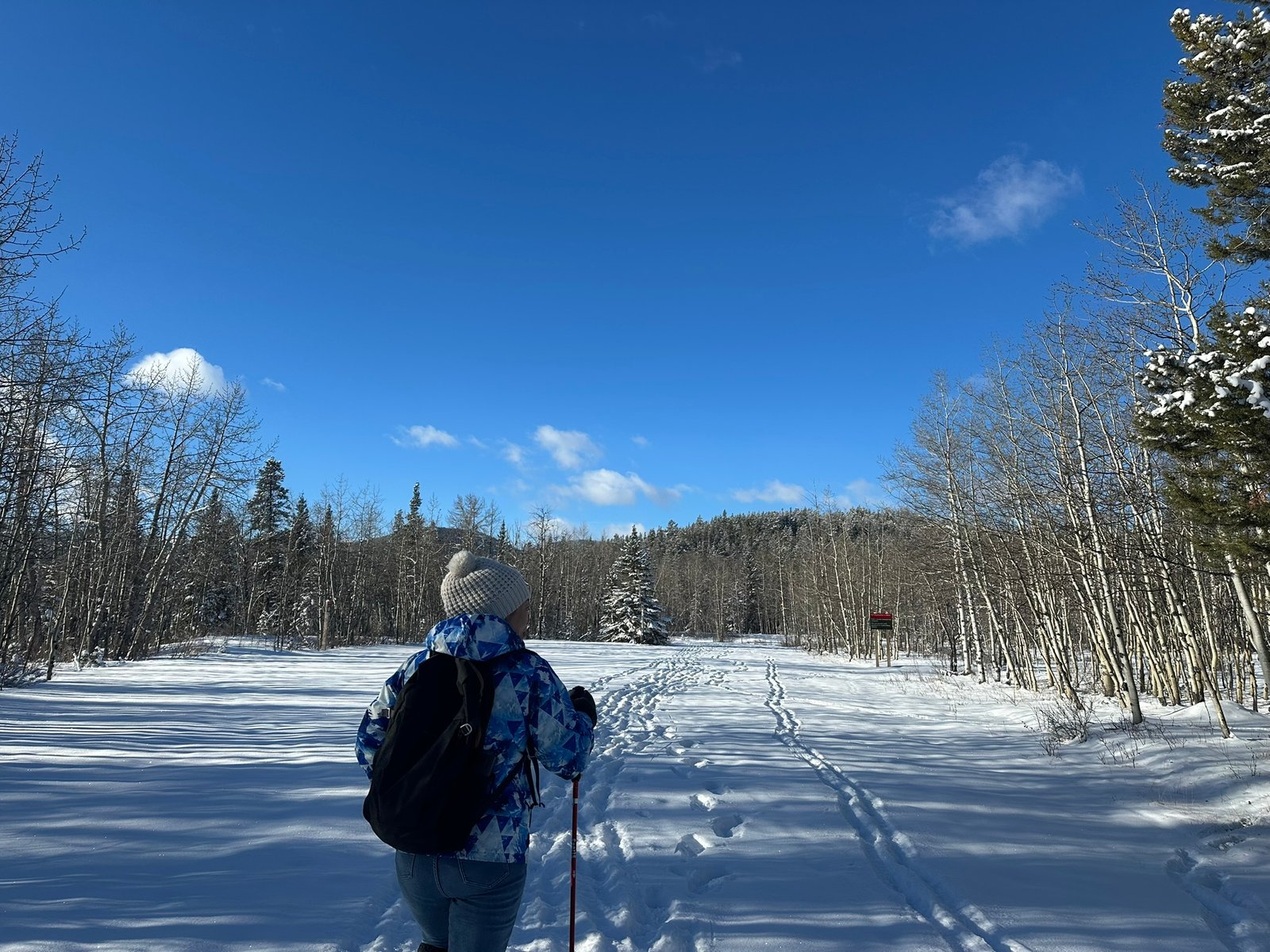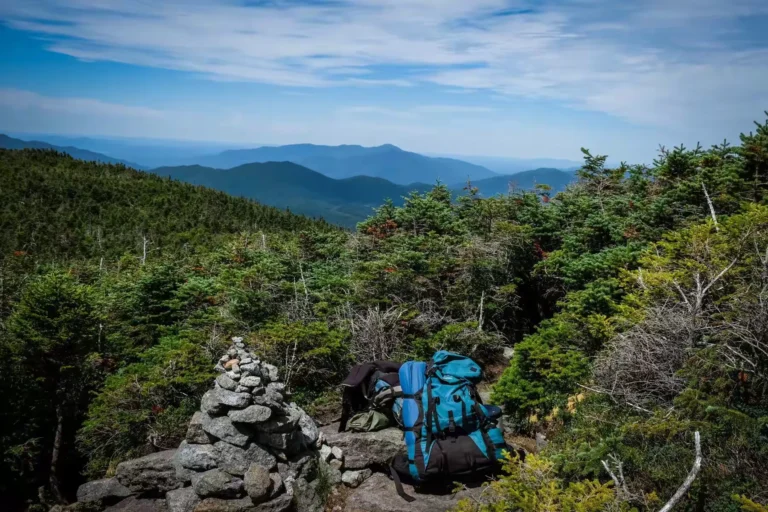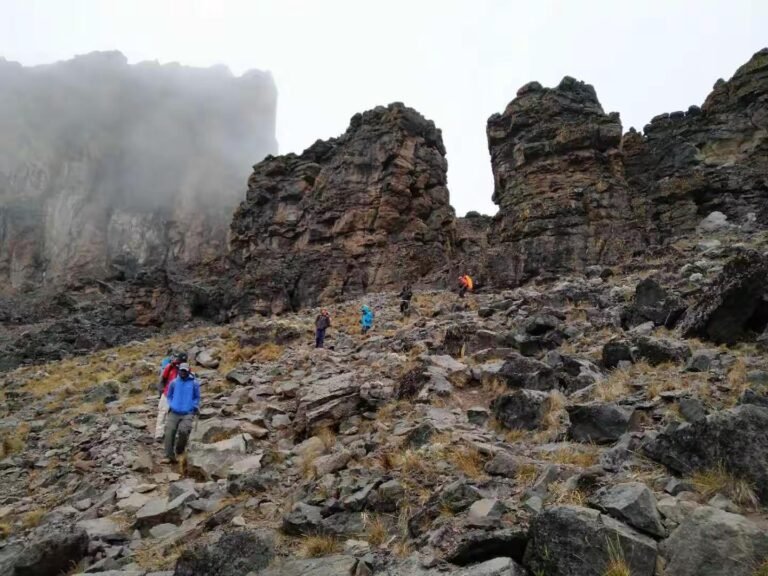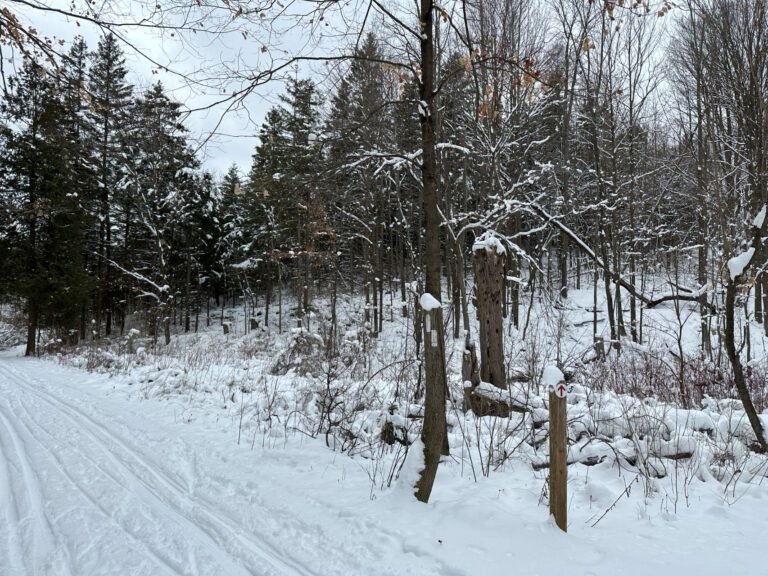Winter hiking is an incredible way to enjoy my favorite snow-covered landscapes, but it comes with challenges. Cold temperatures, icy trails, and shorter daylight hours mean you need to be well-prepared. That’s why having the right winter hiking essentials is so important. With the right gear and a few smart tips, you can stay warm, safe, and enjoy every step of your adventure.
Some of the links below are affiliate links, but most are products I personally use and love. I’m sharing them because I genuinely recommend them!
Layered Clothing
To stay warm and dry, I always dress in layers, which is the golden rule of winter hiking essentials:
- Base Layer: All my base layers are from Icebreaker – I’ve tried different brands, and nothing wicks sweat as well as this one. Even in cold winter hikes, sweating is inevitable, but with Icebreaker, I never feel damp. And in summer, it’s even more impressive! My trail running shirts and shorts are also from this brand—while others can see sweat soaking through my back, I still feel dry and comfortable.
- Mid Layer: An insulating layer like fleece or down to trap body heat.
- Outer Layer: A waterproof and windproof shell to protect against snow, wind, and rain.
- Extras: For temperature under -15 degrees, I always bring an additional layer, such as an insulated jacket, for extra warmth during rest breaks.
Insulated & Waterproof Footwear
- I recommend wearing insulated, waterproof hiking boots with good traction. My favorite brand is Solomon for both hiking and trail running! What I love most is the quick-lace system—just one pull, and you’re good to go. It makes putting on and taking off boots super easy, especially when camping or during long hikes.
- Use wool socks and always bring an extra pair. Personally, I only trust Icebreaker – all my hiking and winter socks are merino wool from this brand. What I love most is its moisture-resistant properties. Even if my shoes and socks get wet, they don’t feel damp right away. Plus, they won’t stink on multi-day hikes!
- Gaiters keep snow out of your boots and provide extra warmth. This pair is a basic model that does the job well!
Hand & Head Protection
- Insulated gloves or mittens (consider layering a waterproof shell over thin gloves).
- A wool or fleece hat to retain heat.
- A buff or balaclava to protect your face from wind and frostbite.
Navigation Tools
- A paper map and compass (don’t rely solely on electronics).
- GPS or a hiking app like Alltrails (download the trail map at home) as a backup.
- A headlamp with extra batteries (essential for shorter daylight hours in winter).
Traction Devices & Hiking Poles
- I highly recommend microspikes or crampons for icy trails.
- Snowshoes for deep snow.
- Trekking poles with snow baskets for stability.
Extra Food & Water
- Pack calorie-dense foods such as nuts, dried fruits, energy bars, and chocolate.
- Use insulated water bottles to prevent freezing.
- A thermos with warm tea, coffee, or soup can help maintain body heat.
Fire-Starting Kit
- Waterproof matches (or matches packed in a ziplock bag) or a lighter.
- Fire starters (cotton balls soaked in petroleum jelly or commercial fire starters).
Sun Protection
- Sunglasses or goggles to reduce snow glare.
- Sunscreen: I’ve tried so many sunscreen brands, but Neutrogena Hydro Boost 50 is my favorite. It goes on completely clear, which is a huge plus because I hate looking like a ghost after applying sunscreen. It’s lightweight and refreshing, never feels heavy, and even in the hottest weather, I don’t mind wearing it – it’s that breathable!
First Aid & Safety Gear
- A fully stocked first aid kit with supplies for frostbite and hypothermia.
- A whistle to signal for help.
- An emergency beacon or satellite communicator for remote areas.
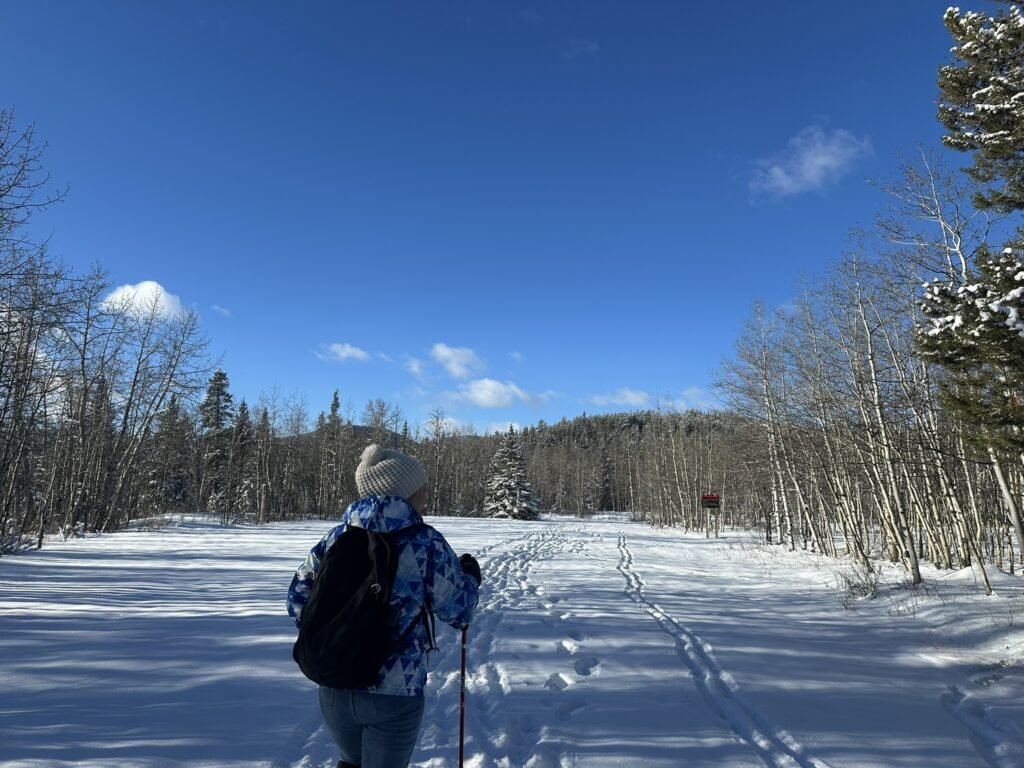
Additional Winter Hiking Tips:
✔ Check Weather Forecast: Be aware of changing conditions and plan accordingly.
✔ Start Early: Days are shorter, so begin your hike early to maximize daylight.
✔ Inform Someone of Your Plans: Let a friend or family member know your route and expected return time.
✔ Know the Signs of Hypothermia and Frostbite: I talked to a friend who experienced mild frostbite once, and it reminded me how important it is to act quickly if symptoms appear.
✔ Turn Back if Necessary: If the weather worsens or conditions become unsafe, don’t hesitate to cut the hike short.
Winter hiking can be an exhilarating and rewarding experience when you’re well-prepared with the right winter hiking essentials. I always make sure to stay safe, dress in layers, and carry the necessary gear to fully enjoy the beauty of the snowy outdoors. Check one of our winter day hikes in Kananaskis Alberta.

